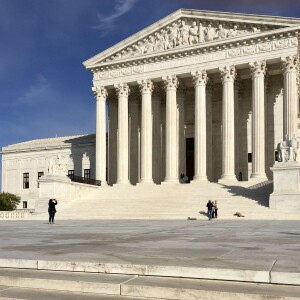
McIntosh v. United States (Criminal Forfeiture)
 2024-04-19
2024-04-19
McIntosh v. United States
Petitioner Louis McIntosh was indicted on multiple counts of Hobbs Act robbery and firearm offenses. The indictment set forth the demand that McIntosh “shall forfeit . . . all property . . . derived from proceeds traceable to the commission of the [Hobbs Act] offenses.” The Government also later provided McIntosh with a pretrial bill of particulars that included as property subject to forfeiture $75,000 in cash and a BMW that McIntosh purchased just five days after one of the robberies. After a jury convicted McIntosh, the District Court imposed a forfeiture of $75,000 and the BMW at the sentencing hearing. Although the District Court also ordered the Government to submit an order of forfeiture for the court’s signature within a week from the hearing, the Government failed to do so. On appeal, the Government moved for a limited remand to supplement the record with a written order of forfeiture. The Second Circuit granted the unopposed motion. Back in District Court, McIntosh argued that the failure to comply with Federal Rule of Criminal Procedure 32.2(b)(2)(B)—which provides that “[u]nless doing so is impractical,” a federal district court “must enter the preliminary order [of forfeiture] sufficiently in advance of sentencing to allow the parties to suggest revisions or modifications before the order becomes final as to the defendant”—meant that the District Court could not proceed with forfeiture at all. The District Court overruled McIntosh’s objections, finding that the Rule is a timerelated directive, and that the failure to enter a preliminary order of forfeiture before sentencing did not prevent the court from ordering forfeiture because the missed deadline did not prejudice McIntosh. The Second Circuit affirmed in relevant part. Held: A district court’s failure to comply with Rule 32.2(b)(2)(B)’s requirement to enter a preliminary order before sentencing does not bar a judge from ordering forfeiture at sentencing subject to harmless-error principles on appellate review.
(a) Although the District Court did not comply with Rule 32.2(b)(2)(B) when it failed to enter a preliminary order of forfeiture before McIntosh’s initial sentencing, the District Court retained its power to order forfeiture against McIntosh.
(b) McIntosh’s contrary arguments are unpersuasive. He points to he Rule’s use of the word “must” to highlight its mandatory character, but such language standing “alone has not always led this Court to interpret statutes to bar judges . . . from taking action to which a missed statutory deadline refers.”
(c) Noncompliance with Rule 32.2(b)(2)(B) is a procedural error subject to harmlessness review. Because McIntosh did not challenge the lower courts’ harmlessness analysis in either his certiorari petition or his opening brief, this Court need not revisit it. P. 13.
Read by Founder RJ Dieken
More Episodes
 2019-05-20
2019-05-20
 2019-05-13
2019-05-13
 2019-05-13
2019-05-13
 2019-04-29
2019-04-29
 2019-04-01
2019-04-01
 2019-03-27
2019-03-27
 2019-03-26
2019-03-26
 2019-03-26
2019-03-26
 2019-03-21
2019-03-21
 2019-03-04
2019-03-04
 2019-03-04
2019-03-04
Create your
podcast in
minutes
- Full-featured podcast site
- Unlimited storage and bandwidth
- Comprehensive podcast stats
- Distribute to Apple Podcasts, Spotify, and more
- Make money with your podcast
It is Free
- Privacy Policy
- Cookie Policy
- Terms of Use
- Consent Preferences
- Copyright © 2015-2024 Podbean.com




